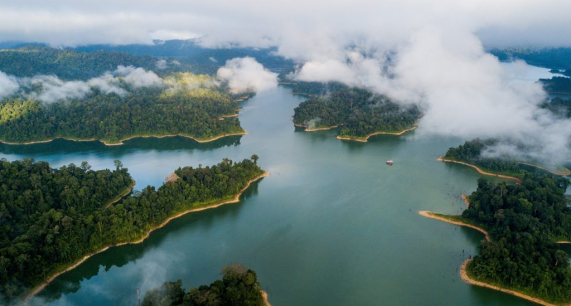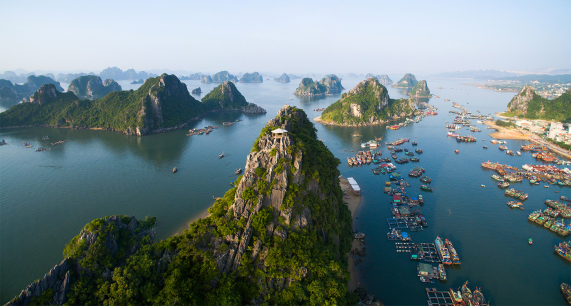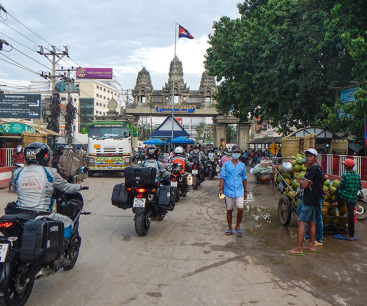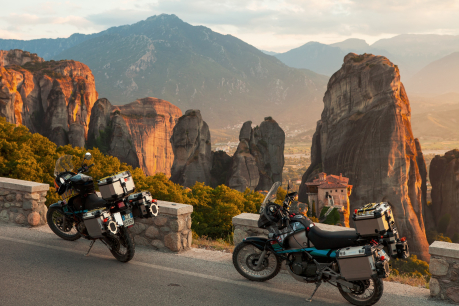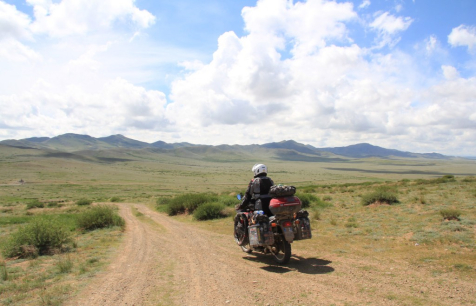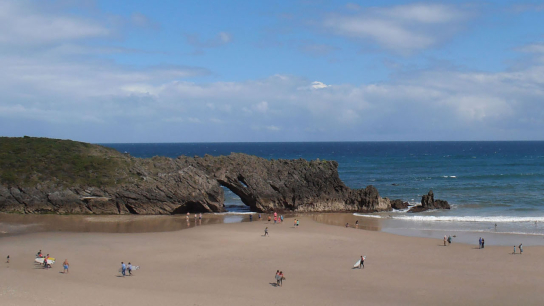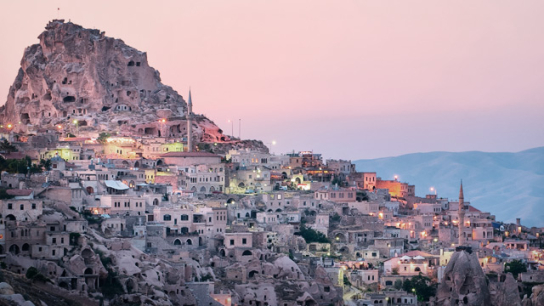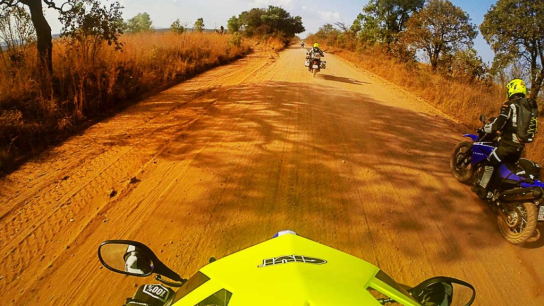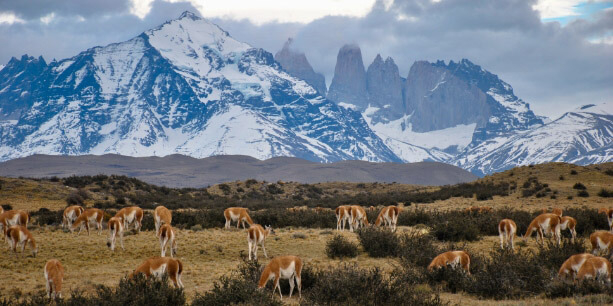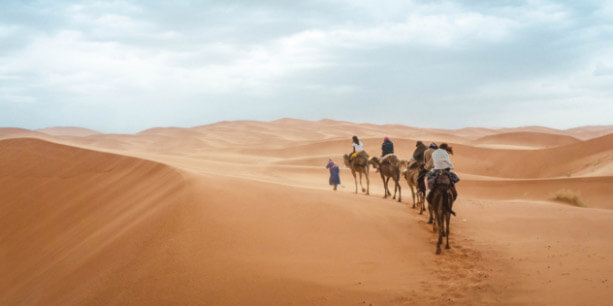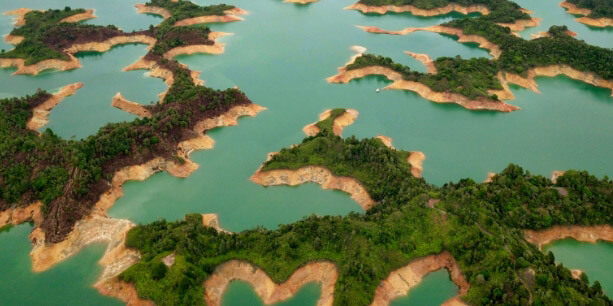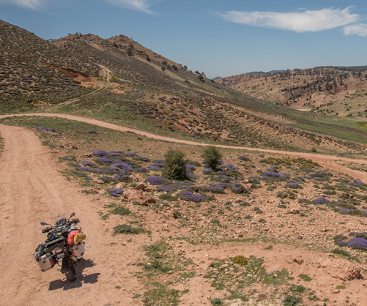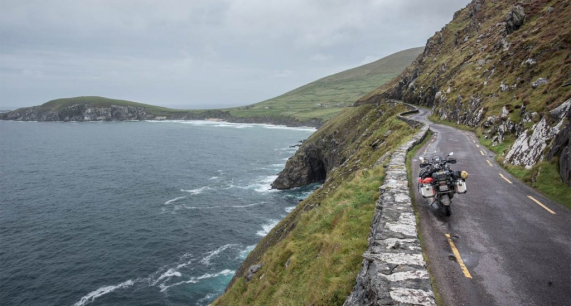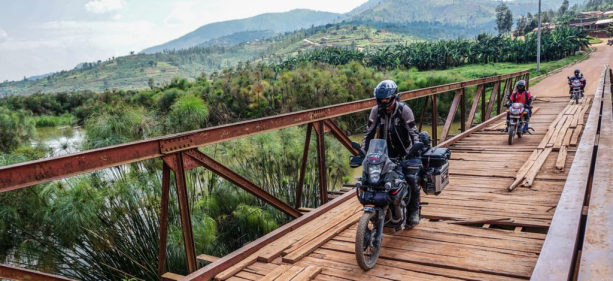Corsica – practical info
Alone or with others?
If you plan on visiting Corsica with a standard road motorbike there is no need to hire a guide. The most spectacular itineraries can easily be found on the web. This Island is French territory and one of the most popular destinations in Europe for motorcyclists and as a consequence, there is plenty of information available.
If on the other hand, you are mainly interested in off-road trails, both in coastal or mountainous areas, it might be useful to obtain the services of a local guide or the help of a specialized organization.
Getting around with a local means that you get to visit exclusive spots with good technical support.
On a whole, there aren’t any problems with travelling solo or in a couple. Naturally, it’s more fun if you go with a group of friends.
Avoid camping outside of designated camping areas and find out ahead of time about the drivability of the mountain roads.
Road signs are bilingual (French/Corsican) on the whole island, on main and country roads. Often you can also find Italian/Corsican road signs, while on town and internal roads, they are gradually becoming more common, but they cannot be found everywhere.
You must drive carefully in Corsica: the breathtaking views can easily snatch your attention away from the roads, which are often winding and at times there are no guard-rails or other forms of protection.
For the most part, the connections between towns follow old trails and there are still in use bridges built during the Genovese period, while a few of the passes that separate Cismonte and Pumonte are still crossed by roads that are only just wider than 3 meters.
It’s not unusual to have to cross asphalted fords to reach some towns (which become impassable at the first sign of heavy rain).
In conclusion, on one hand the roads of Corsica make getting from one town to the next a bit more difficult, but on the other hand this preserves the land from the typical impact of mass tourism.
For motorbikes, headlights are obligatory both at night and during the day. It is also obligatory for scooters registered after July 1st, 2004.
The most convenient way to reach Corsica is without a doubt by ship: there are a number of connections that are frequent both from Italy and France, and connect mainly to the cities of Ajaccio and Bastia, but also to smaller ports like Calvi and Ile Rousse.
The costs for reaching the Island with a motorbike are quite reasonable. It’s generally advisable to book well in advance if you intend to go in August. At other periods of the year there are special rates which allow you to save some money on the ferry – even though they’re mainly targeted at cars rather than motorbikes. The links via sea from France are guaranteed from the ports of Marseilles, Nice and Toulon; from Italy the active ports are Livorno, Savona, Genoa and Civitavecchia. From Sardinia you can get to Corsica from Porto Torres and from Santa Teresa di Gallura.
For those arriving from other continents, it’s possible to fly and hire a motorbike in Corsica. You can leave from France with AirFrance or from other smaller airlines. In summer there are a number of charter flights that let you reach the island from other European countries. There are four airports: Bastia Poretta, Ajaccio Campo dell’oro, and Calvi Sainte Catherine, Figari Sud Corse.
Motorbike equipment
Usually European motorcyclists reach Corsica with their own bike. At times, riding through various countries before arriving at the point of departure for the ferries that reach the island.
For this reason, it’s important to leave on the right foot…. and especially with the right equipment for your luggage, to increase your comfort on the road and the protection of your vehicle. The choice, apart from the length of the trip, is about which period of the year to go in, the type of motorbike you should use, the type of trail (road or off-road). Travelling alone or in a couple complicates things further.
In the second instance, the priority will go to hard cases: definitely a couple of side ones with a possible addition of a top case, that besides increasing the volume gives a place to rest a helmet when one stops for a bathroom break or a walk.
The network of roads is quite varied and often, most of all on the internal ones, the roads can almost become paths. Passing from asphalt to dirt roads is frequent and as a result, especially if the motorbike is new, you can’t leave without an engine guard, an oil carter protector and even perhaps a radiator shield.
If you leave on a naked bike you might need a windshield and seeing that you’ll be on an Island where beaches represent the major attraction, backpacks and duffel bags are a must. Give a look at some waterproof lines, like those of GIVI. Something that must not be left at home, are those small accessories that let you recharge your electrical devices while you’re on the road. Don’t forget the indispensable anti-puncture kit and of course a first aid kit. The anti-theft alarm must be very hardy. It’s better if it’s mechanical, better still if it’s connected to the electric one. Make sure your bags have a Security Lock.
Technical clothing? Ventilated but with the ability to protect from wind and rain if necessary.
If your trip is to the top of the island, choose a technical jacket that has a thermal liner.
Go for strong shades, for the helmet and jacket, that are also visible during the day (a fluorescent yellow vest is always a good idea).
Personal and motorcycle documents
Corsica is an Island situated in the Italian geographical region, but the territory belongs to France and therefore they follow French legislation. Citizens of the European community must have with them their identity card, driver’s license and green card.
An entry visa is not necessary and one can travel freely around the island even for periods greater than 3 months ... on condition that their personal documents are valid.
Those who arrive from other countries must contact the Embassy or Consulate in their country in advance. Useful information can be found on the French customs site “www.douane.gouv.fr” in the section “Les conseils aux voyageurs à leur arrivée en France”.
The state of emergency declared by the French government following the attacks in Paris on 13 November 2015 is no longer in place, but the French authorities continue to consider the risk of attacks high.
Surveillance has been tightened, including in connection with certain commemorations, feast days and periods of the year, with specific security measures implemented in places considered “sensitive”, such as airports, stations, subways, large shopping centres, markets, and highly frequented areas in general, including tourist attractions. We recommend taking the utmost caution at all times.
Also note the possibility of protests and strikes, which could affect all the main categories of workers and sectors, including transport. This means the potential for disruptions when travelling by plane, by train, and by public transport in general throughout the country.
Therefore, it is advisable to stay up to date with the latest information before setting out on a journey.
Healthcare service
The health situation is excellent. There are no diseases present to note. Citizens members of the EU can receive all medical care necessary through the French healthcare system. All that is needed is your Healthcare Card.
It is advisable anyway, and this goes for any country in the world, to take out an insurance policy that covers any possible medical expenses including the repatriation or transfer of the patient to another country.
The COVID-19 situation
As of 1 August 2022, healthcare formalities to enter France have been lifted.
As a result, travellers going from Italy to France no longer need to produce any health-related documentation.
For more information on the conditions for entering France, visit the following website: https://www.interieur.gouv.fr/covid-19-deplacements-internationaux
Language, currency and other tips
Major cities: Ajaccio (in the south), Bastia (in north Corsica).
Area: 8,681 sq km.
Languages: French, Corsican, many also speak Italian.
Currency: Euro
Electricity: 230Volt
Mobile Networks: France is served by 4 French mobile phone operators (SFR, Bouygues Télécom, Orange Mobile and Free).
To be able to use your mobile on French territory and choose a French provider, contact your National operator to find out further information.
Credit cards: the most popular ones are accepted by hotels, restaurants and shops. It’s also possible to withdraw cash at bank machines and exchange offices.
Motorways: In Corsica there aren’t exactly motorways, but National Roads. No tolls.
Speed Limit: 50km/h in city; 80km/h on extra-urban roads and 110km/h on fast roads.
Useful web sites:
Ajaccio Municipal Tourist Office website: excellent recommended itineraries and a list of the most beautiful beaches
Bastia Municipal Tourist Office website
https://www.visit-corsica.com/ – the official portal for tourism in Corsica
Useful Numbers:
17 Police help
18 Fire-engine
15 Medical emergency
112 Emergencies from mobile phones
Since April 15, 2010 a number has been supplied (116 006) to provide you with information regarding your rights in case of violations, this lets you get in contact with organizations that will help you out with your situation: assistance, insurance etc.
The Italian Consulate in Bastia - Rue Saint-François 20200 BASTIA – 0033 4 95 34 93 93
Fuel
As of late May 2023, the cost of one litre of petrol in France is €1.846. Taking into consideration the size of the Island, your petrol bill won’t be excessively high. Petrol stations are aplenty and so the risk of being caught short is unlikely.
When to travel
Like other nearby Islands, the Corsican climate is Mediterranean: hot, dry summers and mild winters on the coast, with lower temperatures in the internal mountains that can reach up to 2,700 metres and can be covered in snow until the end of Spring. This morphology makes it attractive also for those who when at the beach appreciate a mountain view.
The annual average temperature (12°C) isn’t very indicative, as temperatures can be affected by the mountain ranges. The average coastal temperature is higher at 16.6°C.
Corsica is by extension the fourth Island of the Mediterranean. You can travel from North to South in half a day (183km) and it is just over 80km at it’s widest point
The rainy period is between November and January.
Those who can, plan a motorcycling trip in late Spring (April/May) or towards the end of summer (September). Two ‘happy’ periods, which offer sunny weather that isn’t too hot, and a water temperature that is perfect for long swims.
To give you an idea of how much Corsica has to offer a motorcyclist, from North to South, East to West, you need at least 8 days.
Motorcycle rental
In Corsica it’s possible to hire any type of motorbike or scooter. On the Island you can find different rental companies, some which have staff that organize guided daily tours or for longer periods. It’s also possible to partake in tours leaving other parts of Europe, with a hired motorbike or with your own. On the web you can find a bit of everything. To have an idea of the costs and services offered here are a few of the offers.
Corsica moto rent
Vehicle rental company with a fairly large fleet of motorcycles/scooters.
The company has two headquarters: 57 cours Napoleon (Rent Car Corsica office) 20000 Ajaccio;
Route du Port, Rue de la BCR, 20137 Porto Vecchio (tel: 04 95 70 03 40)
To contact the company, you need to fill out a form in the “contact” section of their website:
https://www.corsica-moto-rent.com/
Between sea and mountains
Motorbike and scooter rental in Calvì.
BMW “maxi” bikes and Kymco scooters are available. A GS 800 costs around €900 for one week during the summer, €790 during the off season.
20260 Calvì- tel. +33 4 95 65 21 26 – http://www.tramare-monti.com/fr/ – red.calvi@wanadoo.fr
You can get more information by filling out the form on the website.
Rental motor bike
Motorcycle and scooter rental in Corsica (Ajaccio, Bonifacio, Borgo and Propiano).
All the top brands are available: BMW, Yamaha, Honda, KTM, Kawasaki, Piaggio etc.
Rentalmotorbike.com – No email address is provided. To contact the organisation, it is necessary to fill out a form.
Group trips in corsica
A few options found on the internet:
EUROPE ACTIVE (also rents motorbikes) - https://www.europe-active.it/
MOTOEXPLORA – https://motoexplora.com
MCi TOURS (self guided) – https://www.mcitours.com/
IMTBIKE – https://www.imtbike.com/
Contents updated as of May 2023
Your indications are always useful to update the PRACTICAL INFO




